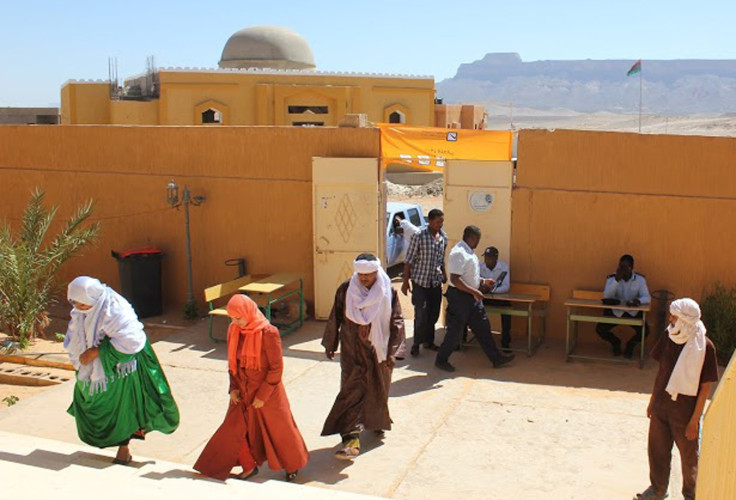Libyans Vote In Parliamentary Election Despite Hifter's Attacks On Government Strongholds in East

Libyans went to the polls Wednesday to vote in the country’s first free election in more than 40 years, but recent violence in the east spearheaded by a rogue renegade general could threaten its legitimacy.
“Libya is a mess. If this election helps move them forward it will be a miracle,” Paul Sullivan, a professor of security studies at Georgetown University, said. “Libya is on the edge of total anarchy.”
For more than a month, Gen. Khalifa Hifter, the man commanding troops in eastern Libya in an attempt to overthrow the government, has vowed to cleanse the country of what he calls Islamist “terrorists.” Libya’s interim government announced the date of the parliamentary election just over a month ago following Hifter’s launch of an operation to oust the country’s leaders. Hifter, who used to serve under former President Moammar Gadhafi, has garnered the support of over a dozen militant groups, including the Libyan special forces.
Candidates running for parliament are required to run independently rather than with party affiliations. This is a new electoral system for Libya, which has relied in the past on an election process that earmarked nearly half of its seats for political parties and blocs.
The High National Election Commission (HNEC) announced that 1,734 candidates are vying for the 200 seats. Some analysts have said that the interim government announced the election date too soon and that the voter population, plus those running in the election, may not be ready to make an informed decision about the future of the country. Because of the knee-jerk election announcement, little information is known about the candidates. Few had time to prepare campaigns.
According to Reuters, 1.5 million of the 3.4 eligible voters have registered for the poll. The electoral law, which was drafted in January 2012, specifies that all candidates must be over 25, and that citizens with dual nationality can vote and run for office.
Clashes between Hifter’s militants and Libyan military forces have left more than 70 people dead and have deeply rattled the central government. For weeks it seemed as though the country would fall into a full-fledged civil war. Although that still remains a possibility, it seems as though Hifter’s attempts at ousting the current interim government have largely failed.
It is unclear, though, how the warring forces in Libya will respond to the election results.
“Given the situation now it is clear no matter what the result many will be unhappy,” Sullivan said. “If it looks like the Islamists will win a lot of seats, there will be problems with General Hifter and others. If the Islamists do not get what they think they deserve there will be problems.”
Those problems began to present themselves halfway through the voting process Wednesday as several residents and journalists on the ground reported that Hifter forces conducted air raids, despite their agreeing to a cease-fire during the voting.
Hafter forces made air raid in militias location-as a retaliation militia fire anti aircraft gunfire & made shelling Hafter position #Libya
— Stefan Mugitsch (@StefanMugitsch) June 25, 2014Reports claiming Hiftar's forces attacked Feb17 base in Benghazi, possibly w/ air strikes. He had promised ceasefire for election day #Libya
- Mary Fitzgerald (@MaryFitzger) June 25, 2014Several other people on the ground in Tripoli and Benghazi reported low voter turnout, some blaming the extreme heat. Libyan media reported that only 13 percent of the registered 1.5 million voters cast their ballots by midday.
© Copyright IBTimes 2024. All rights reserved.











